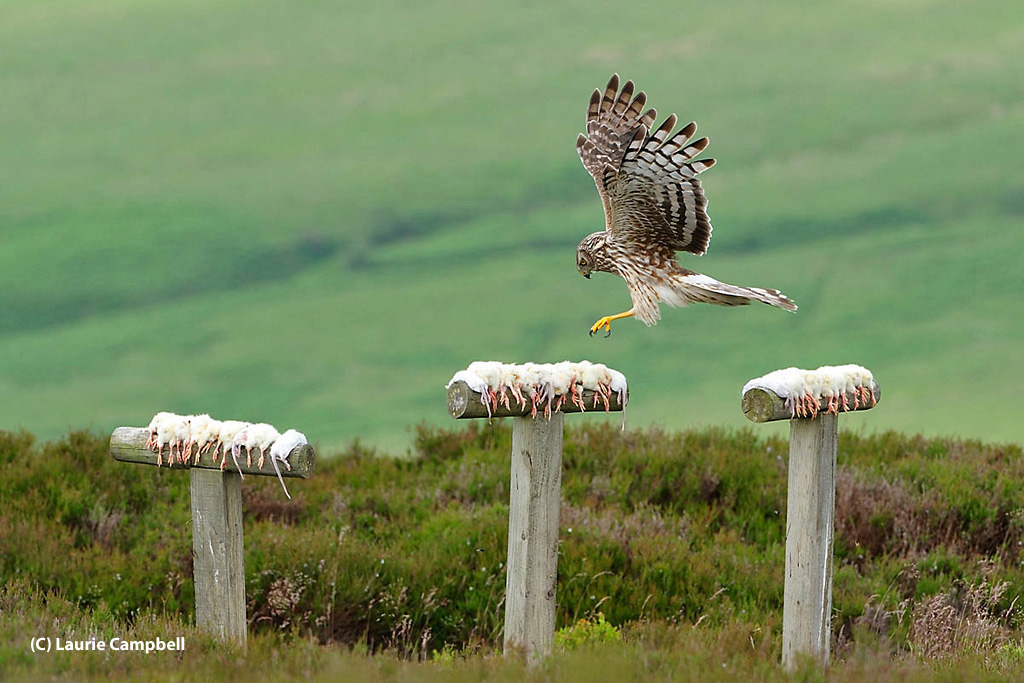The UK’s largest shooting organisation, the British Association for Shooting and Conservation (BASC) has expressed its disappointment and concern at the apparent loss of contact with two satellite-tagged hen harrier chicks in Lancashire.
BASC is urging all parties to exercise a pragmatic, common sense and evidence-based approach in support of the investigation. Speculation is both unhelpful and may be counterproductive.
The chicks were fledged on land which is managed for shooting. The shoot managers were closely involved in the monitoring of nests and tagging of the fledged chicks. BASC understands that the area where one of the birds is thought to have disappeared is a known historic winter roost for hen harriers and is not involved in management for driven shooting.

BASC chairman Alan Jarrett said: “We are very disappointed to hear of the loss of contact from two transmitters attached to these hen harrier chicks. At this early stage and in the absence of any evidence it is unwise to start pointing fingers and claiming the disappearance is due to illegal persecution. Such allegations are putting short-term campaigning over the longer-term issue of protecting and encouraging the re-emergence of the hen harrier in England.”
“BASC condemns all illegal persecution of birds. Unfounded allegations serve only one purpose – to confuse the issue in order to make short-term campaigning gains. It is evidence and evidence alone which must be used.”
BASC director of conservation Tim Russell said: “Hen harriers are ground-nesting birds and are vulnerable to predation. Mortality rates in all birds are high in their first year and can be up to 70% in birds of prey. Recently-fledged hen harrier chicks are known to have fallen to predators including foxes and other birds of prey. Power cables and other causes are also known to have been factors in early mortality. In addition, tracking devices can and do fail. Until there is firm evidence on this incident, unhelpful speculation and allegations should cease.”
Successful nests in Lancashire which led to fledged birds being tagged and tracked were carefully monitored and protected by a local grouse shooting syndicate.
BASC England North West officer Duncan Thomas, a former police wildlife crime officer, said: “People involved in the shooting syndicate assisted in the monitoring of the nests, funded diversionary feeding measures to help the birds fledge and imposed an exclusion area around the nests. They were also there with Natural England staff when the trackers were fitted. The shoot did everything possible to ensure the success of both of these very important nesting attempts and we are deeply disappointed at the loss of contact with the birds and the hasty attempts to portray the shooting interest as villains.”
BASC chief executive Richard Ali said: “It is not acceptable for anyone to immediately blame shooting interests without solid supporting evidence.”
“The benefits of grouse moor management for conservation are well documented. Grouse are wild birds and can only be encouraged by careful habitat management, which also encourages a wide range of other species. Without grouse shooting, these habitats would not be as rich or as diverse. Grouse shooting also plays a vital role in the economy of upland rural areas. The latest research shows that a shoot will benefit local businesses and communities within a significant area.”
“A Joint Action Plan to encourage the Hen Harrier back to the North of England has been drawn up. It has been prepared with input from all stakeholders including shooting and conservation interests. It is time that plan was published and its recommendations implemented without delay in order to protect hen harriers and reintroduce them to the North of England. We call on the Government to make the plan public as soon as possible.”
For more information please call the BASC press office on 01244 573052